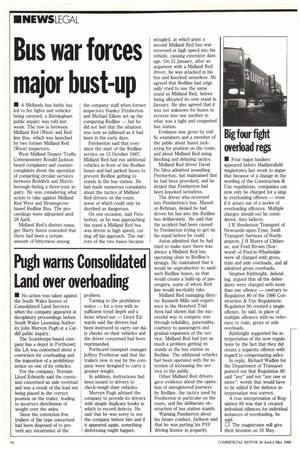Big four fight overload regs
Page 26

If you've noticed an error in this article please click here to report it so we can fix it.
• Four major hauliers appeared before Huddersfield magistrates last week to argue that because of a change in the wording of the Construction & Use regulations, companies can now only be charged for a single overloading offence — even if it arises out of a series of overloading offences. Multiple charges should not be considered, they believe.
J R Henderson Transport of Newcastle-upon-Tyne; Swift Transport Services of Northampton; J H Myers of Clitheroe, and Fred Brown (Norwood) of Pool-in-Wharfedale were all charged with gross, train and axle overloads, and all admitted gross overloads.
Stephen Kirkbright, defending, argued that all the defendants were charged with more than one offence — contrary to Regulation 80 of the 1986 Construction & Use Regulations. Regulation 80 created a single offence, he said, in place of multiple offences with no reference to train, gross or axle overloads.
Kirkbright supported his interpretation of the new regulations by the fact that they did create a separate offence with regard to compensating axles.
In reply, Richard Wadkin for the Department of Transport pointed out that Regulation 80 said "any" and not "any one or more": words that would have to be added if the defence interpretation was correct.
A true interpretation of Regulation 80 was that it created individual offences for individual instances of overloading, he said.
C:1 The magistrates will give their decision on 16 May.




















































































































































